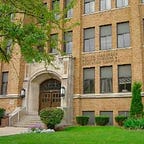Marquette medical laboratory science faculty member receives $250k research grant to improve state’s SHARP infrastructure, recognition of antibiotic resistance
By Alex Nemec, marketing communication specialist, Office of University Relations
Dr. Erik Munson, assistant professor of medical laboratory science, in Marquette University’s College of Health Sciences has been awarded a $250,000 grant from the State of Wisconsin to improve the state’s Strengthening Healthcare-Associated Infection/Antibiotic Resistance Program (SHARP) infrastructure.
SHARP is funded through the American Rescue Plan and is intended to strengthen and equip state, local and territorial public health departments and other partner organizations with the resources needed to better prevent and fight infections in U.S. healthcare facilities, including COVID-19 and other known and emerging infectious diseases.
“Patient management is at the center of all health care, and the ability to administer proper treatment plans for bacterial infections can be pivotal in the context of patient care,” Munson says. “Maintaining the Surveillance of Wisconsin Organisms for Trends in Antimicrobial Resistance and Epidemiology program will provide clinicians throughout the state with empiric data to help guide treatment decisions.”
Changes in antimicrobial susceptibility may affect clinicians’ choices of empiric antimicrobial agents from both a clinical patient care and an antimicrobial stewardship perspective. For example, current American Thoracic Society/Infectious Disease Society of America pneumonia guidelines state macrolide as monotherapy is a treatment option in settings where macrolide resistance is documented to be low. However, providers may be unaware of local macrolide resistance patterns or where the data can be found. Munson’s research will ensure health care providers have a reliable, up-to-date source of the antibiotic resistances in the state.
“Dr. Munson’s work during the pandemic in operating the COVID-19 testing lab on campus was critical to the continued success the university had with mitigation, and his expertise and commitment was recognized when President Michael Lovell named Erik a Difference Maker this past spring,” says William E. Cullinan, dean of the College of Health Sciences. “Dr. Munson’s new research grant from the state will advance his important work in identifying changes in antibiotic resistance, a primary public health concern.”
